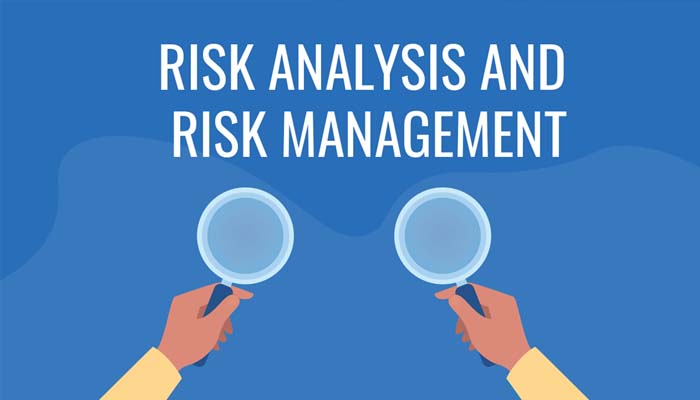
Financial analysis is a critical skill for anyone involved in finance, accounting, or business management. It involves evaluating financial data to understand an organization’s performance, forecast future trends, and make informed business decisions. A financial analysis course is designed to equip students with the knowledge and tools necessary to analyze financial statements, assess the financial health of businesses, and support strategic decision-making. Whether you’re an aspiring financial analyst, a business owner, or a professional looking to enhance your financial literacy, this course can provide valuable insights and practical skills. This article explores the key components of a financial analysis course, covering the essential topics and skills you can expect to learn.
1. Understanding Financial Statements

One of the first and most important topics covered in a financial analysis course is understanding financial statements. Financial statements, including the income statement, balance sheet, and cash flow statement, are the foundation of financial analysis. The course will teach you how to read, interpret, and analyze these statements to assess a company’s financial performance. You will learn to identify key metrics such as revenue, expenses, assets, liabilities, and cash flows, and understand how they relate to each other. This knowledge is crucial for making informed decisions about investments, budgeting, and financial planning.
2. Ratio Analysis

Ratio analysis is a powerful tool used to evaluate a company’s financial health by comparing different financial metrics. In a financial analysis course, you will learn how to calculate and interpret various financial ratios, including profitability ratios, liquidity ratios, and solvency ratios. These ratios help analysts assess a company’s efficiency, profitability, and ability to meet its financial obligations. By understanding ratio analysis, you can compare a company’s performance with industry benchmarks and identify areas of strength and weakness. This skill is essential for conducting thorough financial assessments and making data-driven decisions.
3. Cash Flow Analysis

Cash flow analysis focuses on understanding the inflows and outflows of cash within a business. This section of the course will teach you how to analyze a company’s cash flow statement to determine its ability to generate cash and meet its financial commitments. You will learn about operating cash flow, investing cash flow, and financing cash flow, and how each of these components affects a company’s financial stability. Understanding cash flow is critical for assessing a company’s liquidity, managing working capital, and making strategic investment decisions.
4. Valuation Techniques

Valuation is a key aspect of financial analysis, especially for professionals involved in mergers and acquisitions, investment banking, or portfolio management. In a financial analysis course, you will learn various valuation techniques, including discounted cash flow (DCF) analysis, comparable company analysis, and precedent transactions. These methods are used to estimate the value of a company, an asset, or an investment. Understanding valuation techniques allows you to determine whether a business or investment is overvalued or undervalued, helping you make more informed investment decisions.
5. Financial Modeling

Financial modeling is the process of creating a mathematical representation of a company’s financial performance. This skill is essential for forecasting future financial outcomes, assessing the impact of different scenarios, and making strategic decisions. In a financial analysis course, you will learn how to build financial models using spreadsheet software like Excel. These models can range from simple budgeting tools to complex valuation models used in investment banking. Financial modeling is a critical skill for anyone involved in finance, as it allows you to simulate different scenarios and make data-driven decisions.
6. Risk Assessment and Management

Risk assessment and management are crucial components of financial analysis, particularly in today’s uncertain economic environment. In this part of the course, you will learn how to identify, assess, and manage financial risks. This includes understanding market risk, credit risk, liquidity risk, and operational risk. You will also learn about various risk management techniques, such as hedging, diversification, and the use of financial derivatives. By mastering risk assessment and management, you can help your organization mitigate potential losses and make more informed investment decisions.
7. Industry and Economic Analysis

A comprehensive financial analysis course will also cover industry and economic analysis. This involves evaluating the external factors that can impact a company’s financial performance, such as industry trends, market conditions, and economic indicators. You will learn how to conduct a macroeconomic analysis to understand the broader economic environment and how it affects different industries. This knowledge is essential for making informed investment decisions, as it allows you to assess the potential impact of external factors on a company’s performance.
8. Ethical Considerations in Financial Analysis

Ethics play a crucial role in financial analysis, as analysts are often responsible for providing accurate and unbiased information that influences major business decisions. In a financial analysis course, you will learn about the ethical standards and best practices in the field. This includes understanding the importance of transparency, integrity, and objectivity in financial reporting and analysis. By adhering to ethical principles, financial analysts can build trust with stakeholders and contribute to the overall integrity of the financial markets.
Conclusion
A financial analysis course provides a comprehensive understanding of the key concepts and tools needed to analyze financial data and make informed business decisions. From understanding financial statements and conducting ratio analysis to mastering valuation techniques and financial modeling, this course equips you with the skills necessary to excel in the field of finance. Whether you are a beginner looking to enter the world of finance or a professional seeking to enhance your analytical skills, a financial analysis course can help you achieve your career goals. By understanding and applying these principles, you can contribute to the financial success of your organization and make more informed investment decisions.
